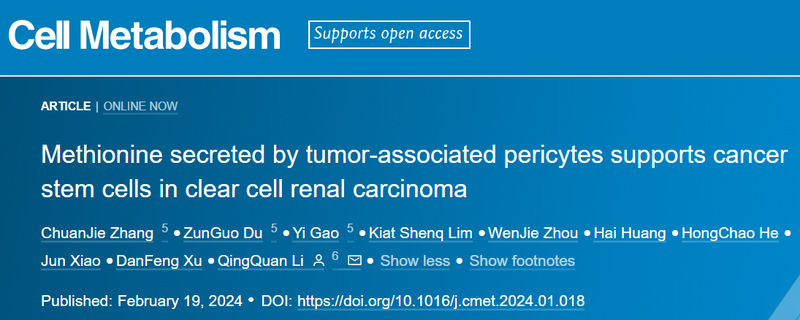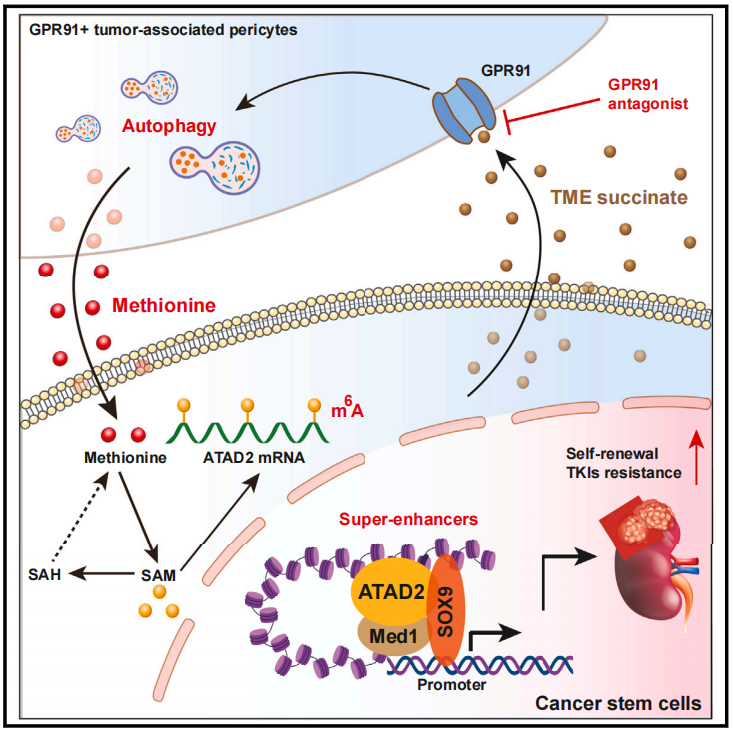

On February 19, 2024, Professor Li Qingquan's team published a research paper entitled "Methanine secreted by tumor-associated pericytes supports cancer stem cells in clear cell renal cancer" in Cell Metabolism. Pericytes are heterogeneous mural cells surrounding blood vessels that are critically involved in malignant progression. In this study, they identified a subset of vascular pericytes, defined by expression of PDGFR-β and GPR91, that promote tumorigenesis and tyrosine kinase inhibitors (TKIs) resistance by functioning as the primary methionine source for cancer stem cells (CSCs) in clear cell renal cell carcinoma (ccRCC). Tumor cell-derived succinate binds to GPR91 on the pericyte surface to activate autophagy for methionine production. CSCs use methionine to create stabilizing N6-methyladenosine (m6A) in ATAD2 mRNA, and the resulting ATAD2 protein complexes with SRY-box transcription factor 9 (Sox9) to assemble super enhancers and thereby dictate its target genes that feature prominently in CSCs. Targeting PDGFR-β+GPR91+ pericytes with specific GRP91 antagonists effectively reduced intratumoral methionine level, eliminated CSCs and sensitized tumors to TKIs. These results described how PDGFR-β+GPR91+ pericytes provide supportive niche for CSCs and therefore could be potential targets for treating ccRCC.

Dr. Zhang Chuanjie from the First Affiliated Hospital of the University of Science and Technology of China, Associate Professor Du Zunguo from Huashan Hospital of Fudan University, and Associate Professor Gao Yi from Ruijin Hospital of Shanghai Jiao Tong University School of Medicine are the co first authors of this article; Professor Li Qingquan from the School of Pharmacy at Fudan University is the corresponding author of this article. This study was supported by the National Natural Science Foundation of China.